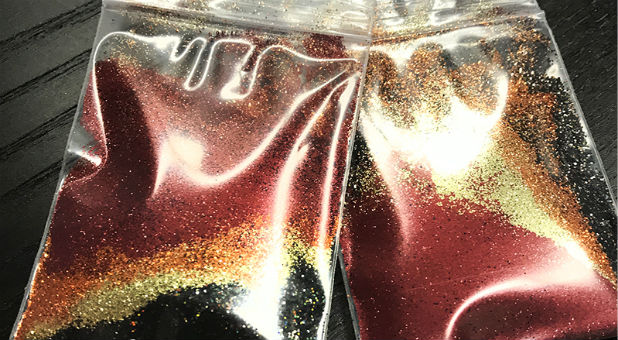LGBT Activists Using Sparkles to Distort Pentecost
The “tongues of fire” Christians believe rained down on Pentecost just got a whole lot flashier with “Glitter and Fire,” a new project intended to promote the acceptance of LGBT people in the church.
Pentecost — which will be marked by most Christians on June 4—comes from the New Testament’s Book of Acts. After his death, Jesus’ disciples met to discuss how to continue his ministry. Suddenly, “they saw what seemed to be tongues of fire that separated and came to rest on each of them.”
The disciples were “filled with the Holy Spirit” and began speaking in foreign tongues. They then departed to plant churches throughout the Roman world, making Pentecost the “birthday” of the Christian church.
Fast forward to today’s Pentecost, add a specially crafted liturgy, prayers, blessings and bags of red, gold, orange and black glitter to make what Parity, a New York-based LGBT advocacy group, hopes will be a way to affirm LGBT Christians.
“Pentecost’s liturgical color is red, but the other colors are there to represent diversity, which is what Pentecost is all about,” said Marian Edmonds-Allen, Parity’s executive director.
The glitter—which Parity will send to any interested congregation or ministry at no cost—can be mixed with oil for anointing or wrapped in paper and tossed in the air to rain down on people in special “glitter blessings.”
Neither is part of the usual Pentecost observance. And that, Edmonds-Allen said, is the point.
Parity has played with glitter before. Its “Glitter Ash Wednesday,” held for the first time this year, provided churches with special purple glitter to mix with the usual palm ash as a way of showing support for the equality of LGBT Christians. According to Parity, glitter was sent to 200 congregations in 29 states and three countries.
Both the Ash Wednesday and the Pentecost projects are collaboration between Parity and Queer Virtue, an LGBT-affirming organization founded by Rev. Elizabeth Edmund, an Episcopal priest and activist.
Although several major Christian denominations welcome and affirm LGBT members and clergy, others do not. The Episcopal Church, the Evangelical Lutheran Church in America, the Presbyterian Church (USA), the United Church of Christ and Metropolitan Community Church have full inclusion, but the United Methodist Church remains divided on the issue. {eoa}
© 2017 Religion News Service. All rights reserved.




























































